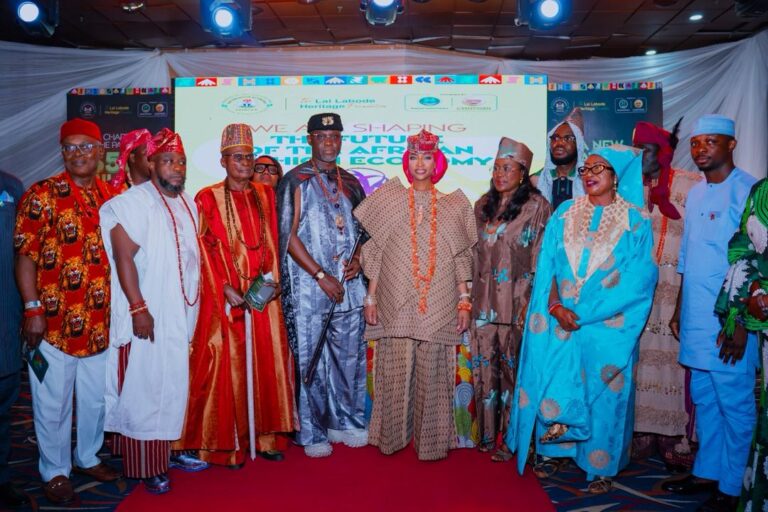ABUJA, Nigeria – In a strategic move that positions it at the helm of Africa’s burgeoning creative economy, Nigeria has executed a decisive policy signature, becoming the first nation to formally endorse the African Fashion Industry Growth Charter. This action, far more than a ceremonial gesture, marks the official launch of a coordinated continental strategy to capture the untapped economic value of African fashion.
The signing on November 5, 2025, at the NICON Luxury Hotel in Abuja, was the operational launch of the AfroLiganza Movement—a framework designed to consolidate Africa’s fragmented creative sectors into a unified, governable market. The event, which served as the CAFA World Press Conference & Unveiling Ceremony, functioned as a high-level stakeholder summit, assembling government officials, traditional rulers, and industry leaders to ratify a new structure for the continent’s creative governance.
The core objective, as articulated by the initiative’s architects, is to stem the massive financial leakage currently plaguing the continent. “Africa’s fashion and textile market is already worth tens of billions, but that value is leaking away through imports and lost local processing,” stated Balogun Lai-Labode, PhD, President of the Confederation of African Fashion (CAFA). He presented a clear economic thesis: by unifying policy, investing in infrastructure, and connecting creative talent to global supply chains, Africa can transform a dispersed industry into a consolidated $500 billion fashion economy.
The operational roadmap was laid out with the precision of a corporate merger. The movement will culminate in the African Global Fashion Games (AGFG) in 2027, but not before a critical proof-of-concept event, Egbaliganza 2026. This “Parade of Nations” is designed to stress-test the continental framework, establishing protocols for collaboration and cultural exchange that are directly tied to trade and economic growth.
The Nigerian government has positioned itself as the lead investor in this venture. Barrister Hannatu Musa Musawa, The Honourable Minister of Arts, Culture, Tourism and Creative Economy, framed the commitment in terms of market expansion and policy influence, stating the platforms will allow Nigerian talent to “expand their markets, influence policy, and contribute meaningfully to Africa’s fashion economy.”
The message to global partners was equally direct, shifting from an invitation to a call for strategic partnership. Chinny Nwokeodi, Director of Operations at the hosting Lai Labode Heritage Foundation, explicitly tied culture to balance sheets, stating the goal is “to achieve the $500 billion economy for Africans by Africans in the next five years.”
In his closing remarks, Balogun Lai Labode presented a tangible value proposition to international investors: “Bring technology and management skills that increase efficiency and sustainability. In return you gain access to a young, growing consumer market and secure competitive, ethical supply chains anchored in Africa.”
The press conference was, in essence, a prospectus for a new economic frontier. Nigeria, by signing first, has secured a pivotal leadership role in a calculated endeavor to ensure that the future of African fashion is not just celebrated on global runways, but owned, produced, and profited from by the continent itself.

